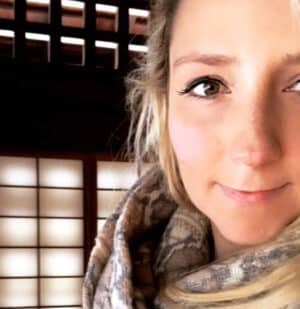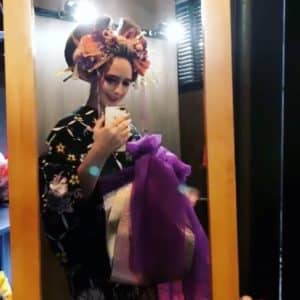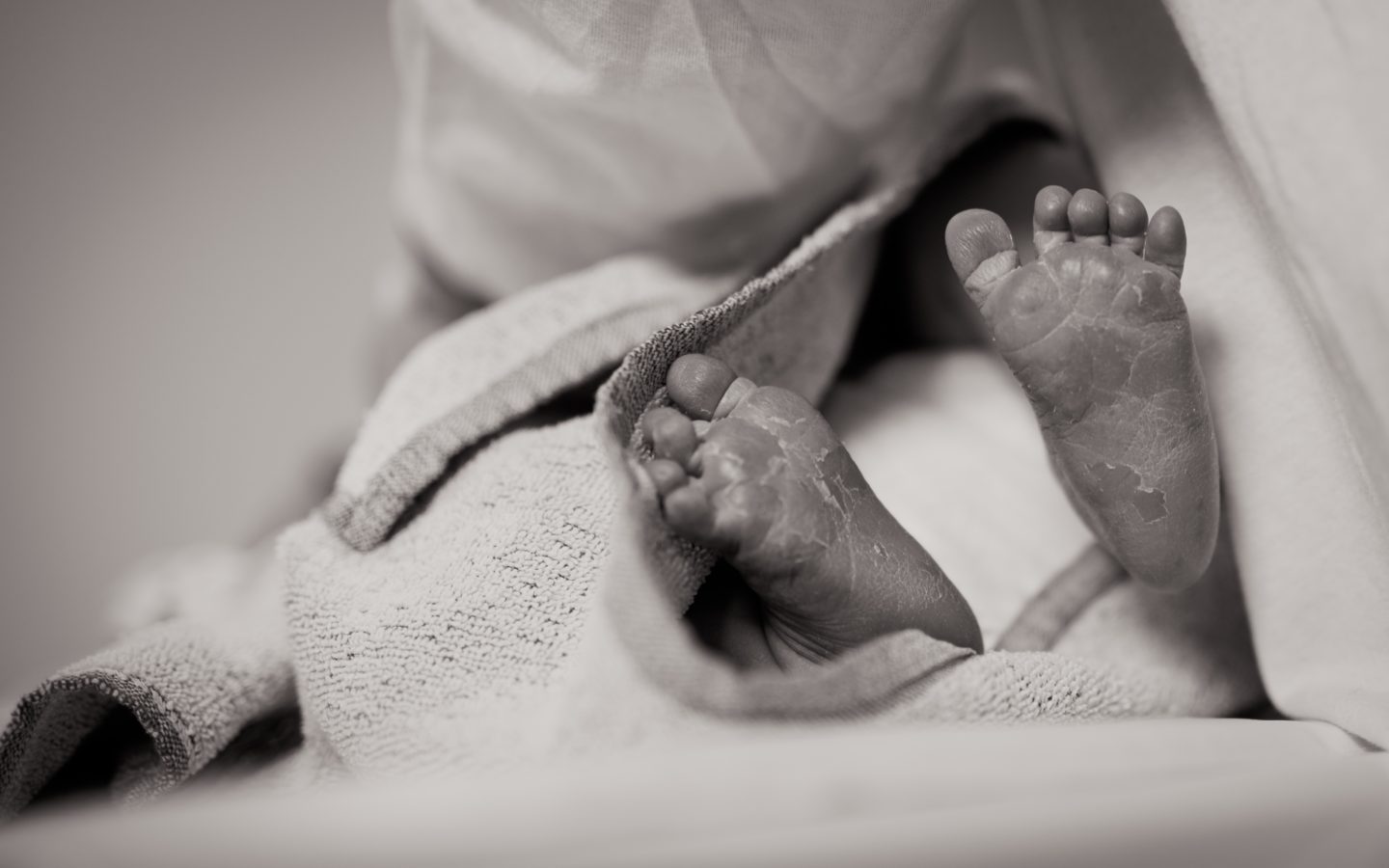
This is the first of a series of guest blog posts where parent’s tell their stories about pregnancies and birth experiences in Japan.
If you would like to share your own story, please do send me an email at contactjoatthetokyochapter@gmail.com.
I just know so many anxious women ( and men) who would just devour your stories and you could truly help ease someone’s mind or just help them be more prepared for their own parent-to-be experience in Japan.
Written by Guest Blogger, Shikha Sashi
Our story
A few weeks into my pregnancy, my husband learnt that his company would be relocating him to Japan.
Though we were expecting this news for a while, we weren’t too thrilled about the timing.
Staying apart for the entire duration of pregnancy and birth was something we weren’t too keen on doing and we didn’t have the option of deferring the move until after the baby was born.
So….our only remaining option was to move to Tokyo (I would be five months pregnant) and navigate this journey in a country where the primary language was not English.
The one thing we absolutely knew from doing an earlier year long stint in Tokyo was that things would be difficult without basic knowledge of Japanese (and our Japanese was non-existent. We couldn’t string three words together, forget being able to communicate and understand medical terms.)
Needless to say the family weren’t too thrilled with this adventurous scheme of ours and it was up to me to convince them (and ourselves) that we’d be just fine.
Starting to plan and research
I began to scour the internet for recommendations of doctors and hospitals, pregnancy and birth practices and pretty much anything that would give me insight into how I was going to navigate the next few months in Tokyo until birth.
It was during one of these search sessions that I came across Tokyo Pregnancy Group (TPG)*, a group on facebook that connects a huge number of pregnant (current and past) expat women in Tokyo and, according to me, is pretty much the bible when it comes to ANYTHING pregnancy related.
*For the Tokyo Pregnancy Group details please see here.
Scrolling through the posts of a number of women on this group I quickly came to the conclusion that Aiiku Hospital seemed to be THE place for pregnancy and birth and Dr Sakamoto and Dr Sen, the most preferred gynaecologists, not just because of their experience but also because they spoke excellent English as did many of the staff in the hospital.
Language is important and you realise that more than ever when you are at the mercy of doctors in a foreign country experiencing something as delicate as a pregnancy. There were several other hospitals mentioned as well but none as often as Aiiku. Aiiku seemed to be the gold standard in hospitals with English speaking doctors in Japan. It seemed like here would be a good place to start.
Making things happen
I made the preliminary call to Aiiku Hospital, spoke to a member of staff at their reception (she spoke perfect English), made notes about the costs, asked if there would be a vacancy for me, and explained my situation.
My husband was making a work trip to Tokyo in a few weeks and, during that trip, he was able to visit the hospital, fill in preliminary paperwork and get me registered.
I now had an Aiiku ID card.
During the next few weeks I made calls to the hospital to double and triple check the documents I’d need to carry with me from my hospital in India, finalise the doctor I’d like to consult with and the date of my first check up upon landing in Japan. I’ll be honest, we found Aiiku to be quite expensive, even with the National Health Insurance I’d be eligible for. Plus we had to factor staying close to the hospital so I could travel easily for check ups and wouldn’t have to commute too far during labour.
Considering where to live…
On speaking with some of our friends in Japan, we learnt that traffic at peak hours could be a nightmare and so it was important to stay close by.
Since Aiiku is located in the heart of the city, rent would be that much more expensive.
Our plan was to rent a place in the city for a year, until a few months after birth and then slowly move out. We thought we had everything figured out. My parents were satisfied (or at least they put up a good show) and I was supremely confident.
Moving to Japan and learning to be more flexible and exploring all of our options
We boarded the plane and landed in Japan in May 2018.
The next day we were to meet an estate agent and view a couple of houses, the primary factor being close to Aiiku Hospital.
A friend of ours who lived over an hour and a half away from this location, on a whim, suggested that we check out a couple of vacancies in the complex they lived in.
I was extremely sceptical because Midori-ku, where they lived, is quite far from where Aiiku is located. But my husband wanted to keep all options open and he, along with a wife who was determined to reject whatever property we were going to view, made our way to our friend’s (and now our) residential complex. And promptly fell in love with the area (completely residential with parks all around). The fact that we managed to snag a flat on the first floor (a hugely difficult task in Japan for a building without an elevator) was the icing on the cake.
Upon speaking further with our friends, we found out that one or two other Indians in the neighbourhood (the complex has a huge number of people from India because of the Indian International School located in the area) had given birth at Showa University Hospital at Fujigaoka, a ten minute car ride away.
To this day, I do not know what it was that prompted me to agree to visit the hospital. After all those weeks of putting all my energies into focusing on getting into Aiiku, the fact that I was willing to explore the option of switching to a “non-English” speaking hospital, with no option of an epidural, was a little scary to me. But having come this far, I thought it seemed the right thing to do to at least check out the hospital. If things didn’t work out, we could go back to Aiiku, where I had an appointment waiting for me.
At Showa University Hospital, to which we were very kindly accompanied by our Indian friend, who spoke Japanese, we had to wait for over two hours as we had walked in without prior appointment. And then, the scariest part, even though I was prepared for it – the doctor who did my first check up, spoke not a word of English. Our friend had to be called into the room to translate for us. We understood nothing and I was very close to breaking down. I was pretty sure this wasn’t going to work. To further add to my misery, we had to visit the administration department where we were given a ton (and by ton I mean TON) of paperwork to complete.
Again, we understood zero and our friend had to translate. By the time we left the hospital I was almost in tears and kicked myself for wasting time in what I was now sure was a pointless venture. I asked our friend how those other Indian ladies had managed at this hospital without knowing Japanese.
Upon making a few calls our friend found out that after confirming their pregnancy at Showa University Hospital they had visited a small ladies clinic nearby for all their regular check ups and only transferred back to the hospital in their 32nd week. Minami ladies clinic had a doctor who spoke good English and that is how they were able to manage. However Minami did not do births and saw women only until their 32nd week, after which they were required to transfer to a hospital. I didn’t dare to hope for much but since we were in the area anyway we decided that I would visit the clinic and meet the doctor before making a final decision. We met with the doctor in the evening and she seemed lovely. She was willing for me to come in for regular check-ups until I reached my 32nd week. And so I registered at Minami.
Finding a translator
The next hurdle was to figure out how I’d manage at Showa University Hospital from week 32 onwards. Tokyo Pregnancy Group had given me many leads, the best of which was Stephanie Katherine Kawai, a pregnancy and birthing coach, and one of the administrators of TPG. I was already planning on asking Stephanie to be my doula when I was in India, and we had exchanged a few emails. But now I contacted her to explain my situation and ask if she knew of a translator who would be able to accompany me to my check-ups at the hospital. She put me onto to Japan Healthcare Info (JHI), and here I found the answer to my dilemma. Upon emailing JHI and asking if they would be able to arrange for a translator to accompany me for visits to the hospital, I was told that this would definitely be possible.
We arranged for a session the following week as I had to complete one last big check-up at the hospital before shifting to Minami. I arrived at the hospital with so much trepidation. My husband had just joined work and couldn’t take time off, The translator had agreed to meet me at the hospital but I didn’t know what to expect and the prospect of navigating all the procedures seemed so very daunting. But I was worried for nothing. Sara, my translator, walked in at the exact time we had arranged and from then on, for the rest of my appointment, I did not have to do a thing. She took complete charge and instructed me on what to do, accompanied me for my blood work, translated what the nurses were trying to communicate, filled out my paperwork and accompanied me to the room for my check-up where she translated every single thing the doctor said. She was the first one who knew I was going to have a boy as I had opted to find out the gender of my baby at this check-up!
Feeling at ease and feeling supported
Even today when I look back at my journey, that one appointment is the most special to me, not least for knowing the gender of my baby but for the overwhelming sense of relief and confidence that, between Sara and the doctor at Minami, I was in safe hands and could have a smooth pregnancy. Post this check-up I met Sara again from my 32nd week onwards. She accompanied for the rest of my check-ups until birth. While I would have loved to have her during labour, I couldn’t because JHI requires that you make each appointment well beforehand and don’t do emergency services. I wasn’t worried about this because I had engaged Stephanie’s services as a doula, which meant that she would be with me and my husband during labour. The only problem was that both Stephanie and I were a little concerned if the hospital would be alright with having a doula in the room.
Being a University Hospital, they had rules and regulations and the concept of having a doula to be present at birth (and who did not belong to the hospital) in Japan is not as prevalent as it is in the West.
Stephanie asked me to pitch it in such a way that I would tell the hospital I needed an interpreter to help liaise between the doctor and me during labour and that I would bring my own. Sara also told me that this would be a good way to get them on board and spoke to my doctor on my behalf during one of our visits. Stephanie is British but has lived in Tokyo for several years and speaks excellent Japanese. So essentially with her by my side, I would not only be getting the support of a doula but also someone to help my husband and I understand what was happening during labour. To my surprise and intense relief the doctor agreed to this right away and immediately made a note of it in my file.
Now I was well and truly prepared. All my check-ups (both at the hospital and clinic) proceeded without a hitch. The thing I love about hospitals in Japan is that you follow the exact same procedure for every single visit. By the time you complete two visits, you pretty much know what is expected of you. You begin by showing your card at the reception. You are then asked to check your weight and blood pressure, report back with the numbers and are then given a cup. You go to the restroom, pee into the cup and leave it for collection. You then wait for your turn to be called, meet the doctor who does your check-up (in my case it was a different doctor almost every time at the hospital), get your questions answered and leave. There was never any deviation from this method, not once. At my last visit to Minami I was given a letter by the doctor to hand over to her counterpart at the hospital. The transition was smooth and seamless.
The other thing I loved was that doctors here share information on a need-to-know basis and are so matter of fact that there is no room for worry. They are calm, cool and collected and for a worrywart like me, this bedside manner was just perfect.
My birth experience
My birth itself was a calm and positive experience. The midwives at the hospital took amazing care of me , tried their best to make me comfortable, had no problems having both Stephanie and my husband in the room, allowed my mother and friend to stay on (in the waiting area) until I delivered at almost 10pm and then allowed them to come into the room to see the baby. It is the midwives who take care or you during labour and the doctor comes in only towards the end. Since I had a very short labour, I met the doctor pretty quickly. There was no option for an epidural but I knew this and was prepared (or as prepared as I could be). Epidurals in Japan are not the order of the day and are only offered at few hospitals. Stephanie’s breathing classes and her encouragement helped tremendously. I was not allowed to nurse my baby immediately even though I had a normal birth. To be honest, I was just so relieved that my baby was healthy and I was well and truly done with labour that I didn’t think to ask for this. I didn’t know that I could. And in the larger scheme of things it didn’t matter. We had made it this far, with the help of some amazing people and I was just thankful.
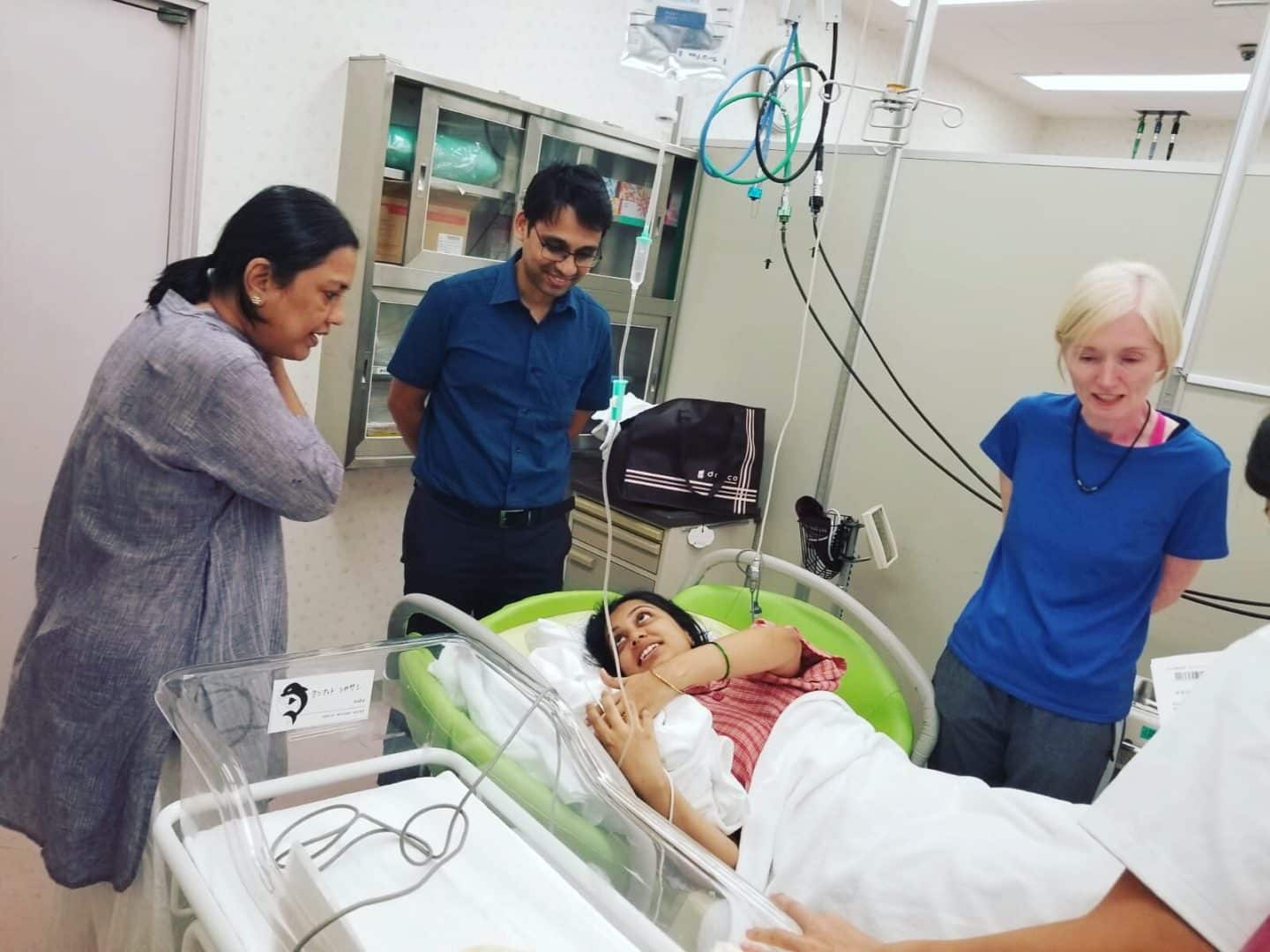
After the birth, time in the hospital
Being a vegetarian the hospital arranged for vegetarian meals for me. I had a lot of tofu those few days but again I wasn’t bothered by this at all. Visiting hours were from 2pm to 8pm and is so different from India where you can have at least one family member with you throughout. But everything was so organised and those first few days are all about establishing feeding routines that you really don’t have time to think or miss the presence of anyone else. Five days later, we were sent home. Throughout my stay I was helped and encouraged at every step of the way. Today when I look back I still can’t believe we made it all the way through with barely a hitch.
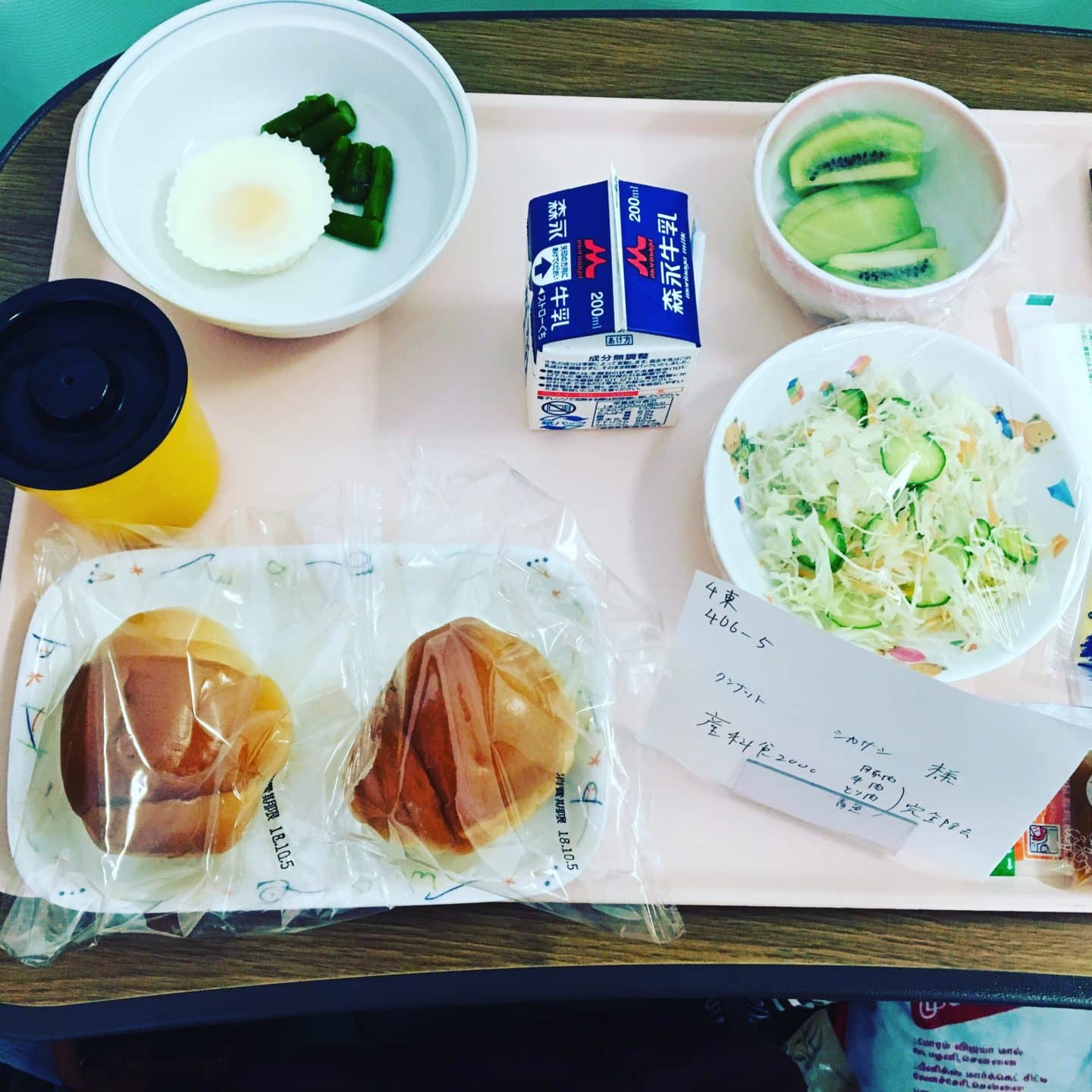
At the very beginning of this journey, when we were still in India, a friend’s mother told me I was very brave to be giving birth in Japan, given that we didn’t speak the language.
Brave or not I’m not sure, but if I had to do it again there’s not one thing I’d do differently.
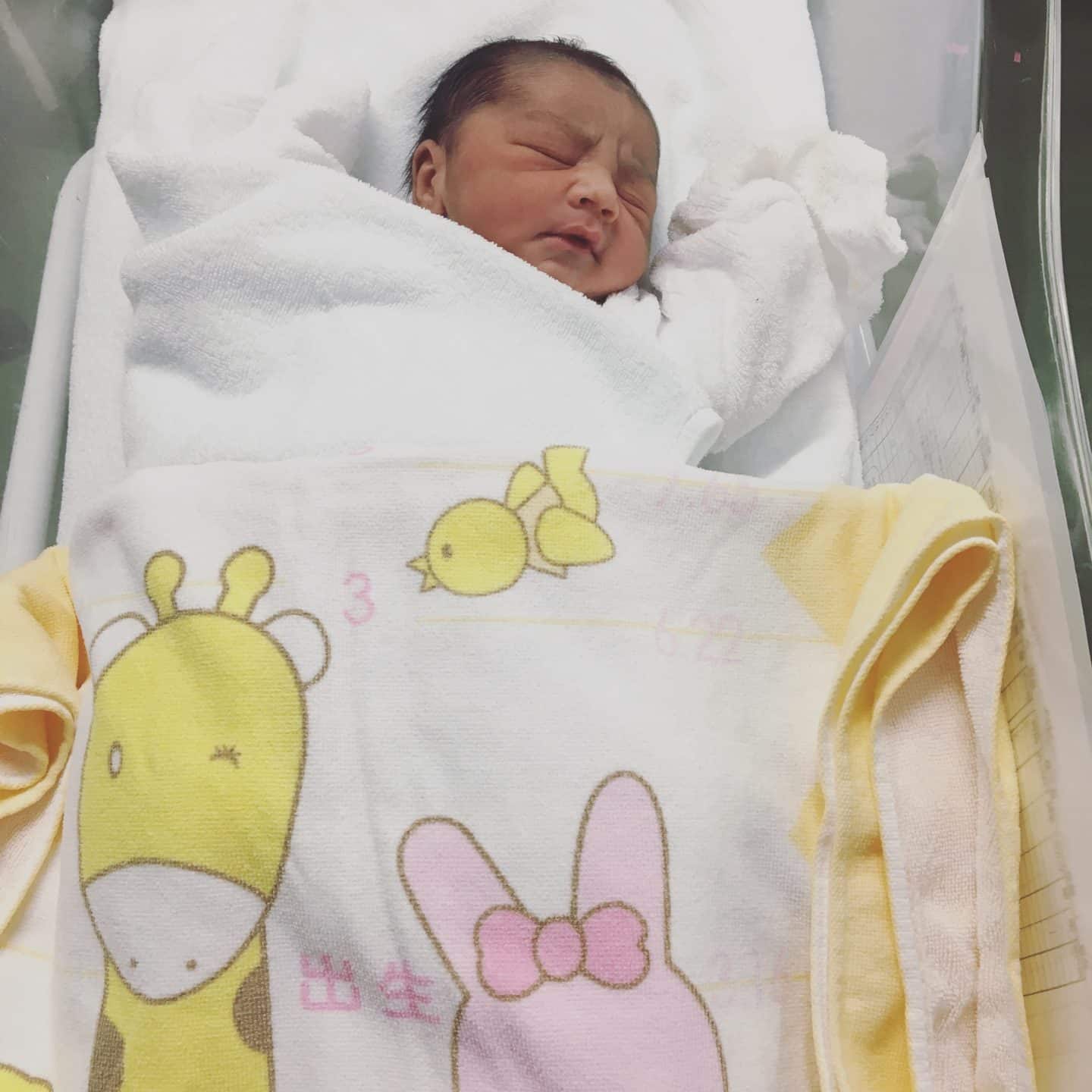
I know so many readers love hearing pregnancy and birth stories like this. Please do let me know if you would be happy to share yours too? It really, really helps other anxious new Mummies-to-be who are about to go through the bumpy and the pushing out the baby adventures in Japan.
This is actually the first of a blog post in the Pregnancy & Birth in Japan series. You may also be interested in the second blogpost here that talks about a Mum who gave birth to two babies in two separate towns in the Japanese countryside.

